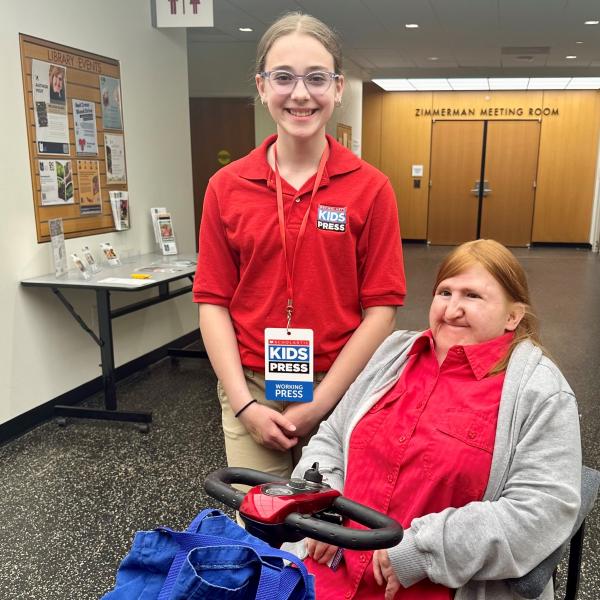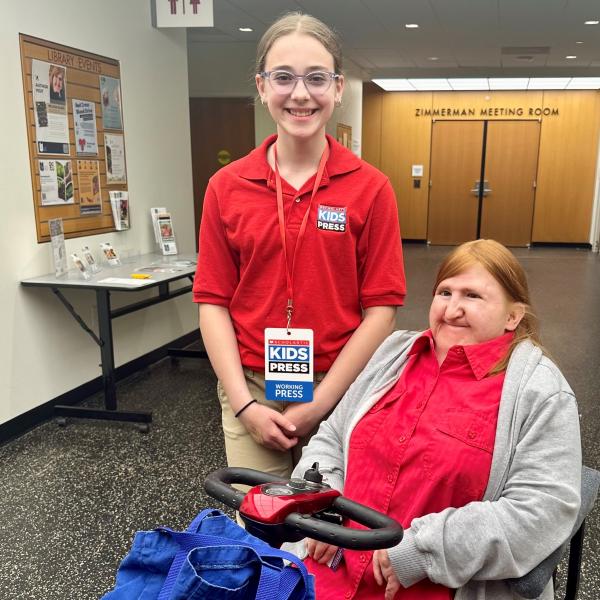
Disability advocate Melissa Blake and Evie at the DeKalb Public Library in Illinois.
Melissa Blake is a journalist, disability advocate, and social media influencer. She raises awareness about the challenges people with disabilities often face in their daily lives.
Blake was born with Freeman-Sheldon syndrome, a rare genetic condition that affects her bone and muscle development.
I spoke with her on May 2 at the DeKalb Public Library in DeKalb, Illinois, where she was there to promote her new book, Beautiful People: My Thirteen Truths About Disability (Hachette Go, 2024), which explores what it’s like to live in a society that often defines people by their disability.
In 2019, Blake faced a rock bottom situation online. One online critic said that Blake should be banned from taking and posting photos of herself. Blake decided to fight back. For the next month, she posted a selfie on social media every day.
“Of course, I knew posting a selfie wouldn’t make the abuse that was being said about me go away,” Blake wrote in Beautiful People, “but that didn’t matter. I wasn’t doing it for them. I was doing it for myself and every disabled person who has ever been bullied.”

Blake points to his new book on a shelf at the DeKalb Public Library.
“I will defend myself.”
Each chapter in “Beautiful People” addresses the realities that Blake and people like her face in their daily lives, including the language used to describe people with disabilities and the overall lack of representation in popular culture.
Blake focuses on ableism, both physical and verbal. She describes physical ableism as “discrimination and social prejudice against people with disabilities based on the belief that normal abilities are superior.” Verbal ableism is the use of derogatory terms directed at people with disabilities.
“I experience ableism in everything from the accessibility of buildings to how people view disabled people,” Blake said. “I’m trying to address that by advocating for myself. That’s the biggest thing I can do.”

